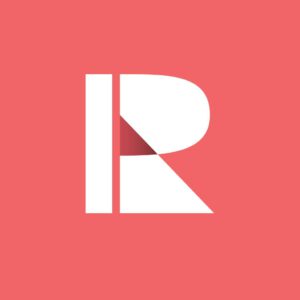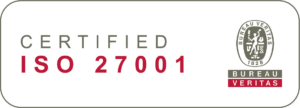On average, it takes 22.9 days in the US for a complete job interview process. The processing speed in the UK sees no improvement, up to 27 days on average. Scheduling multiple and high-volume interviews can be a logistical nightmare, especially for businesses that are still doing it manually. A recruiting team can lose precious time running back and forth by sending emails and juggling different parties’ calendars. The time that would be more useful for forging a strong bond between a recruiter and candidates.
A modern recruiter’s solution for this problem comes in the form of an interview scheduling tool. However, some businesses are still oblivious to their own need for such software. In this article, let’s go through some scenarios where a scheduling app can make a difference.
What are Interview Scheduling Tools?

For HR personnel, scheduling interviews and meetings can often feel like an uphill battle. Relying on manual methods such as spreadsheets or sticky notes, despite their familiarity, can lead to missed appointments and confusion. In situations like this, a modern recruiting team calls for the help of interview scheduling applications.
Are you tired of juggling multiple calendar applications like Google Calendar or Calendly? Interview scheduling software like that of Rakuna’s is your answer. This solution enables recruiting coordinators to consolidate all their calendars onto a single platform, simplifying management and reducing the risk of scheduling conflicts.
Moreover, these tools often come equipped with automated reminders for all stakeholders involved, ensuring that everyone stays on track for upcoming meetings. Other advanced features you should be on the lookout for when finding an interview scheduling tool are the ability to create customizable email templates and generate insightful reports to further streamline communication and decision-making processes.
While you will hear a lot of bells and whistles on every software product page, interview scheduling software should always bring these 3 core benefits. Let’s take a closer look:
- Enhanced Candidate Experience: With automated scheduling, candidates can self-select interview times that align with their schedules, reducing back-and-forth communication and empowering them to take control of their interview experience.
- Efficiency at Scale: Whether you’re scheduling phone screens, event interviews, or high-volume hiring events, interview scheduling software ensures a seamless experience for recruiters, hiring managers, and candidates alike. By automating administrative tasks and providing real-time scheduling capabilities, these applications streamline the entire hiring process.
- Streamlined Complex Interviews: Gone are the days of manually coordinating panel interviews or round-robin sessions. With advanced features like artificial intelligence, interview scheduling software can schedule complex interviews in seconds, allowing your team to focus on strategic hiring decisions and impress candidates with a smooth and efficient process.
When Should Your Company Adopt Interview Scheduling Tools?
Drowning in Applicants?
Use Interview Scheduling Tools for High-Volume Recruiting

Organizations undergoing rapid expansion, navigating seasonal employment surges, or consistently attracting a large volume of applicants for specific roles often find their talent acquisition teams overwhelmed.
The sheer number of interviews required can quickly surpass the capacity of manual scheduling methods. This often leads to a cascade of problems: increased errors in scheduling, significant delays in candidate communication, a decline in the quality of candidate experience, and ultimately, recruiter burnout.
Managing “dozens, or hundreds, of interviews without increasing workload or losing speed” becomes an untenable proposition with manual processes.
The Solution
Interview scheduling software, particularly solutions augmented by artificial intelligence (AI), offers a powerful antidote to these high-volume challenges.
These platforms can automate critical yet time-consuming tasks such as initial candidate outreach, collection of availability from both candidates and interviewers, and multi-channel communication via SMS, email, or integrated chatbots.
Advanced systems synchronize with calendars in real-time, send automated reminders to all parties, and manage rescheduling requests, thereby enabling teams to efficiently handle hundreds of interviews without increasing workload or losing speed.
Global staffing leader Adecco faced precisely this challenge, particularly for its high-volume light industrial roles. To address this, they implemented Mya, a conversational AI tool designed to automate and streamline initial candidate interactions, including screening and scheduling. The results were transformative:
- Massive Scalability: In 2019, Mya was conducting approximately 40,000 candidate screens per month for Adecco. By 2020, this figure had surged to roughly 460,000 conversations in a single month, showcasing the system’s ability to handle enormous fluctuations in applicant volume.
- Drastic Speed Improvement: The time elapsed from a candidate’s application to a scheduled interview plummeted from an average of two to four days to nine minutes or less.
- Enhanced Candidate Satisfaction: Despite interacting with an AI, candidates reported high levels of satisfaction, evidenced by a Net Promoter Score (NPS) of 9.6 out of 10.
- Improved Completion Rates: One company utilizing Mya saw its screening completion rates jump from 37% to an impressive 93%.
These outcomes from the Adecco-Mya deployment underscore that AI-driven scheduling in high-volume contexts delivers not just incremental gains but a fundamental shift in operational efficiency.
This directly impacts hiring speed and candidate satisfaction, even when dealing with vast numbers of applicants. The dramatic reduction in time-from-application-to-schedule is more than an efficiency metric; it represents a potent competitive advantage. In sectors characterized by high-volume hiring for similar roles (e.g., retail, customer service, logistics), the organization that first engages and schedules a qualified candidate often secures that talent.
The high candidate satisfaction observed, despite AI interaction, suggests that for initial scheduling, responsiveness and efficiency can be critical to the candidate experience, potentially outweighing the need for human-only interaction at this stage.
💡 So if your talent acquisition team consistently struggles to keep pace with incoming interview requests, if your time-to-schedule is more often measured in days rather than hours, or if sheer candidate volume is a primary driver of stress, errors, and backlog, these are clear indicators that automation is no longer a luxury, but a necessity.
Are You Losing Talent Due to Friction?
Use Interview Scheduling Tools to Give Recruiting Coordinators More Control

The adage “you never get a second chance to make a first impression” is acutely relevant in talent acquisition. As noted by Bersin,
“The employee experience actually begins with the candidate experience”.
Clunky, slow, unresponsive, or impersonal scheduling processes can create significant friction, leading to a negative candidate experience from the very first interaction. This can manifest in candidates withdrawing from the process, a tarnished employer brand as dissatisfied applicants share their experiences, and increasing difficulty in attracting qualified talent, especially within competitive markets.
Slow responses or a lack of clarity during the scheduling phase can quickly lead to poor impressions and lost candidate interest. The infamous “resume black hole,” where candidates apply but hear nothing back, remains a major pain point for recruiters looking to create a positive experience.
The Solution
Interview scheduling software, particularly platforms incorporating AI and candidate self-scheduling capabilities, directly addresses these experiential shortcomings. These tools facilitate timely, professional, and convenient interactions. Features such as automated reminders, customizable and branded candidate portals, and clear, consistent communication demonstrate respect for a candidate’s time and keep them informed and engaged throughout the initial stages. The ability for candidates to schedule and reschedule interviews themselves, view interviewer bios, and understand their current stage in the hiring process empowers them and contributes to a more transparent and positive journey.
General Motors sought to improve its candidate experience and scheduling efficiency. The automotive giant deployed Paradox’s conversational AI assistant, branded internally as “Evie,” to manage interview scheduling among other recruitment tasks. The impact was significant:
- Dramatic Reduction in Scheduling Time: GM saw its average interview scheduling time plummet from five days down to a mere 29 minutes.
- Positive Candidate Feedback: Candidates expressed appreciation for the immediate communication provided by Evie and valued the autonomy to select and, if necessary, change their interview times.
- Cost Savings: The automation of scheduling led to a major reduction in the costs previously incurred for external contractors who handled interview coordination.
The GM case vividly illustrates a direct improvement in a critical candidate experience metric—scheduling speed. It also highlights candidates’ positive reception of the control and responsiveness offered by automated systems.
This demonstrates that the perception of efficiency and respect for a candidate’s time, facilitated by automation, can be as impactful as the actual interview itself. A seamless scheduling experience sets a positive tone for the entire hiring journey, which can make candidates more engaged and even more forgiving of minor issues later in the process. This is crucial, as top-performing TA teams are 55% more likely to focus on candidate experience improvements.
💡 So, If your organization is grappling with high candidate drop-off rates, consistently receiving negative feedback about the hiring process, or finding it increasingly difficult to attract qualified talent, your interview scheduling process may be a significant contributing factor.
Is Your Team Just Treading Water?
Use an Interview Scheduling Tool to Reduce Recruiters’ Burnout

Talent acquisition professionals are frequently submerged in a list of repetitive, low-value administrative tasks, with interview scheduling consistently ranking as a prime culprit.
This relentless administrative burden not only breeds inefficiency but also contributes significantly to recruiter stress, disengagement, and eventual burnout. Consequently, their capacity for strategic, high-impact activities—such as proactive candidate sourcing, cultivating talent communities, building robust hiring manager relationships, and enhancing employer brand—is severely diminished.
As noted by SHRM, recruiters often spend around 30% of their time on administrative duties like scheduling. Some industry observations suggest professionals can spend an average of 4.8 hours per week solely on the mechanics of scheduling meetings.
The Solution
Interview scheduling software automates the most monotonous and time-consuming aspects of interview coordination. By taking over tasks like availability checking, sending invitations, managing confirmations, and issuing reminders, these platforms free up substantial amounts of recruiter time and mental energy. This liberation allows TA professionals to pivot their focus from logistical firefighting to “strategic initiatives and candidate engagement” or dedicating more time to “meaningful conversations with candidates”.
Systemart, a New Jersey-based recruitment agency, embarked on an automation journey in 2018 by implementing an automated recruitment system. While this system encompassed more than just interview scheduling, the automation of core administrative tasks, including scheduling, was pivotal to their success. The outcomes were compelling:
- A 57% reduction in time-to-hire.
- A 49% decrease in cost-per-hire.
- A tripling of their hiring capacity within 2.5 years. Similarly, Compassus, through the adoption of automation, enabled its recruiters to save up to 20 hours per week.
These examples powerfully illustrate that alleviating administrative pressures, with scheduling as a key component, has a direct and substantial positive impact on core talent acquisition metrics and overall team productivity.
This, in turn, allows TA functions to scale their operations effectively. Saving recruiters significant time does more than just reduce labor costs for scheduling; it fundamentally transforms the recruiter’s role from that of an administrative coordinator to a strategic talent advisor.
💡So, if your recruiters are consistently mired in administrative tasks, if team morale is suffering due to the repetitive nature of the work, or if there is a chronic lack of time for proactive talent sourcing and strategic relationship building, automating interview scheduling can be a vital step in empowering your team, enhancing job satisfaction, and improving the overall efficacy of your talent acquisition function.
Are Time Zones Tangling Your Talent Net?
Use Interview Scheduling Tools for Global & Remote Hiring

The landscape of talent acquisition has been profoundly reshaped by the surge in remote work. While offering access to a broader talent pool, this shift has introduced significant logistical complexities, chief among them the coordination of interviews across disparate time zones.
Manual time zone conversion is notoriously error-prone and can lead to missed interviews, frustrated candidates, and costly delays in the hiring pipeline. The confusion and back-and-forth inherent in manual time zone management can add an estimated 4 to 7 days to the hiring process for remote roles.
The Solution
Modern automated interview scheduling software is increasingly designed to tackle these global and remote hiring complexities head-on. Many platforms now feature automatic time zone detection and conversion, displaying availability and scheduled interview times in the local time for all participants—candidates, recruiters, and interviewers alike. Furthermore, these tools often empower candidates with self-scheduling options, allowing them to select interview slots that are most convenient for their specific time zone and personal schedule, irrespective of the recruiter’s location.
Tacitbase is a platform specifically engineered to support remote hiring teams. Its features include intuitive time zone selection during the scheduling process and one-click interview booking for candidates.
The platform aims to “cut hiring time by 50% with real-time collaboration” and “reduce candidate drop-offs with instant scheduling.” A key benefit highlighted is its ability to manage cross-time zone coordination:
“Coordinating interviews across multiple time zones? Tacitbase’s integrated scheduler automatically finds the best available slots for candidates and hiring teams, eliminating back-and-forth emails”.
This directly addresses the primary pain point of time zone management in remote and global hiring scenarios, showcasing how technology can effectively simplify this inherent complexity. Effective time zone management via scheduling software is fundamental to building an inclusive global hiring process. It signals to international candidates that the company is considerate of their location and well-equipped to manage a distributed workforce, fostering a positive employer brand among international talent pools.
Conclusion
Whether you are finding talent for large companies or enterprises hiring talent as a small group, Interview Scheduling doesn’t have to be difficult. If you encounter recruiting problems in any scenarios mentioned above, consider employing an interview scheduling application.
It might completely change the way your team recruits. For readers who are eager to gain a headstart in the recruitment race, consider checking this article on how to elevate your Interview Scheduling Productivity!
Images used in this post : Freepik

Team Rakuna
The Rakuna Team comprises a diverse group of professionals hailing from various corners of the world.
With a passion to enable organizations to hire their next waves of talents, we are dedicated to help organizations stay updated on important recruiting technology and industry best practices.


